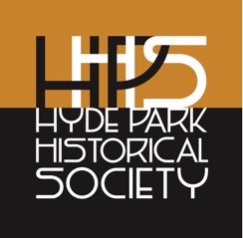Clarence Darrow
A year before he died, Clarence Darrow set forth the principles on which his long career of defending the defenseless was bas ed in a letter to journalist Victor Hackler dated April 14, 1937.
"No one is responsible for his make-up and his acts," Darrow wrote in pen and ink. "We are burdened with many abnormal and misfit humans, who are the victims of their own conduct."
The life of Clarence Darrow, "Attorney for the Damned," is the subject of this month's exhibit at the Hyde Park Historical Society, 5529 S. Lake Park Avenue. The letter to Hackler can be seen there, and gives the clue to the Society's interest in Darrow: at the top of the yellowed page, a Hyde Park address is imprinted beneath Darrow's name.
Darrow was born in Ohio in 1857, and moved to..Chicago in the year 1888. It was one year after the hangings of four of the eight men accused of inciting the riot in Chicago's Haymarket Square on May 4, 1886, when eleven people were killed and more than JOO wounded in a clash between police and advocates of an eight-hour day. An item in the exhibit reports that "all his life, Darrow regretted that he had not been able to participate in the defense of the eight men."
Darr ow took up labor's cause when he defended union leader Eugene Victor Debs, who later led the Socialist Party, in connection with the I 894 strike of Pullman railway workers. The ca e is considered to be a turning point in Darrow's career, which until then had consisted of private and corporate practice.
In subsequent years, Darrow would go onto become an eloquent opponent of capital punish men I. He challenged the authorities to conduct their executions in public and give the day off to workers and students so that t ey might observe the killings. If the executions were to have the deterrent effect claimed for them, Darrow argued, make them as public as possible.
Darrow himself did not believe in the deterrent effect either of capital punishment or of other forms of punishment. "We're all murderers at heart," he said, never one to mince words. Such views angered many. In 1912 Darrow was accused of bribing a jury. He was acquitted on this charge, but then was re-indicted.
Angry at having been placed in double jeopardy, Darrow spoke in his own defense to a Los Angeles jury in 1913. "There is a soul in the American people, there is a conscience in the American people. There is a sense of justice, and though it may sleep, some time it will be awakened," he said.
If Darrow was haunted, it was by the cruelness of people toward the "poor' and unfortunate." The exhibit includes a poem written by Edgar Lee Masters, in which he said of Darrow, "In all my days I have found no sadder man, gladder in his sadness..."
Clarence Darrow died on March 13, 1938. His ashes were sprinkled on the waters of Jackson Park Lagoon, as he had asked, from the bridge which now bears his name. Each year since Darrow's death, a small group has gathered at the site to pay tribute to his life.
Written by Former HPHS Board Member, By Mark Sherman


